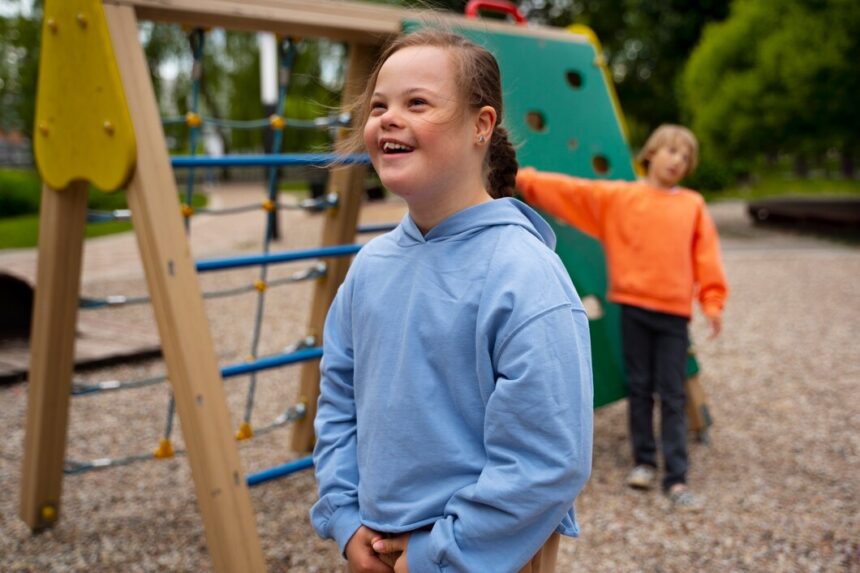Down syndrome, also known as trisomy 21, is a genetic condition that results from the presence of an extra copy of chromosome 21. This additional genetic material affects a child’s physical and cognitive development. Recognizing the early signs and symptoms of Down syndrome is crucial for timely intervention and support. Here are some common indicators that may be observed in infants and young children.
Physical Characteristics
- Facial Features: Children with Down syndrome often exhibit distinct facial features, including a flat facial profile, slanted eyes, and a short neck. A small mouth and ears that are lower than usual may also be noticeable.
- Hypotonia: Hypotonia, or reduced muscle tone, is common in infants with Down syndrome. This can result in a “floppy” appearance and may affect the child’s ability to hold up their head or roll over.
- Short Stature: Many children with Down syndrome have a shorter stature compared to their peers. Growth may be slower, but with appropriate care and nutrition, they can achieve their growth milestones.
- Palmar Crease: A single transverse palmar crease (a line across the palm) is often found in individuals with Down syndrome. This can be a subtle physical marker to look out for.
- Hand and Foot Features: Children with Down syndrome may have shorter fingers, a gap between the first and second toes, and an overall broad, rounded appearance of the hands and feet.
Developmental Delays
- Delayed Milestones: Children with Down syndrome may experience delays in reaching developmental milestones, such as sitting up, crawling, and walking. It’s important for parents and caregivers to monitor these milestones and consult healthcare providers if they notice significant delays.
- Speech and Language Delays: Communication may develop more slowly in children with Down syndrome. They may start to speak later than their peers and often benefit from speech therapy to enhance their language skills.
- Cognitive Development: While each child is unique, many individuals with Down syndrome may experience mild to moderate intellectual disabilities. Early intervention programs can provide support in areas such as learning, problem-solving, and social skills.
Health Concerns
- Congenital Heart Defects: Approximately 40-60% of infants with Down syndrome are born with heart defects, which can range from mild to severe. Regular check-ups with a pediatric cardiologist are essential for monitoring heart health.
- Hearing and Vision Issues: Children with Down syndrome may be at a higher risk for hearing loss and vision problems, including cataracts and strabismus (crossed eyes). Routine screenings are important for early detection and treatment.
- Gastrointestinal Issues: Some children may have gastrointestinal abnormalities, such as duodenal atresia or Hirschsprung’s disease, which can affect their ability to eat and digest food properly.
Early recognition of the signs and symptoms of Down syndrome is essential for ensuring that affected children receive the necessary support and interventions. If parents or caregivers observe any of the above signs, it is important to consult a healthcare provider for assessment and guidance. With appropriate medical care, therapy, and educational support, children with Down syndrome can lead fulfilling lives and reach their potential. Early intervention not only enhances development but also helps families to understand and support their child’s unique needs.










